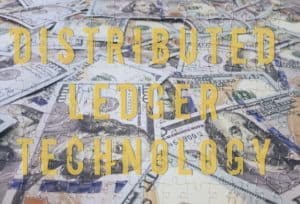On September 22, 2017, the Gibraltar Financial Services Commission (GFSC) issued a Statement on Initial Coin Offerings (ICO). With the GFSC Statement, Gibraltar joined a growing number of jurisdictions that have provided token sale guidance, including, among others, the United States, Canada, Singapore, Hong Kong and China.
A Statement, Not a Warning
While token sale guidance from certain other jurisdictions has highlighted the (very real) risk of fraud from bad actors in the space, and some jurisdictions have issued statements in conjunction with local police forces or have issued outright token sale bans, Gibraltar appeared to be signaling, by virtue of a careful choice of words –which has not gone unnoticed – its interest in becoming a token launch centre of excellence. Notably, the GFSC Statement was published as a “statement,” and not as a “warning” or “alert,” and mentioned that Gibraltar is considering implementing a token sale regulatory framework, stating specifically that “Gibraltar is committed to being a sound and safe place to do business with and is considering a complementary regulatory framework covering the promotion and sale of tokens, aligned with the DLT framework.”
Distributed Ledger Technology (DLT ) Friendly Framework
 For those who may be unaware, in May of this year, the Gibraltar Government released a consultation paper proposing a new regulatory framework applicable to firms that use DLT (ie Blockchain) to ‘store or transmit value belonging to others’ (the DLT Framework). This new regulatory regime will become effective on January 1, 2018 and is principles-based. The DLT Framework’s purpose is to provide a licensing regime that will provide regulatory certainty for operators in the DLT space, while also enabling firms to grow and adapt. The DLT Framework’s ultimate goal is to protect both consumers and the reputation of Gibraltar. As Gibraltar’s Minister for Commerce, the Hon Albert Isola, MP, said last month, during his participation on the regulatory panel at the World Blockchain Forum in London;
For those who may be unaware, in May of this year, the Gibraltar Government released a consultation paper proposing a new regulatory framework applicable to firms that use DLT (ie Blockchain) to ‘store or transmit value belonging to others’ (the DLT Framework). This new regulatory regime will become effective on January 1, 2018 and is principles-based. The DLT Framework’s purpose is to provide a licensing regime that will provide regulatory certainty for operators in the DLT space, while also enabling firms to grow and adapt. The DLT Framework’s ultimate goal is to protect both consumers and the reputation of Gibraltar. As Gibraltar’s Minister for Commerce, the Hon Albert Isola, MP, said last month, during his participation on the regulatory panel at the World Blockchain Forum in London;
“The idea of an innovative framework guiding businesses along the lines of best practice would be a good thing. This is evolving and you can’t box this in, but efforts have to continue towards protecting investors too.”
While no public statements had previously been made by Gibraltar regarding any new regulatory framework that would be specifically applicable to the promotion and sale of tokens (the Token Framework), the GFSC Statement announced that Gibraltar is considering the adoption of such a Token Framework, one that would be ‘aligned’ with the DLT framework. As such, some Gibraltarian experts are of the view that it is entirely reasonable to expect that the current ‘DLT Principles’ may be extended and applied to token promotion and sales activities.
The existing ‘DLT Principles’ can be summarized as follows:
1. A DLT firm must conduct its business with honesty and integrity;
2. A DLT firm must pay due regard to the interests and needs of each and all of its customers and must communicate with its customers in a way which is fair, clear and not misleading;
3. A DLT firm must maintain adequate financial and non-financial resources;
4. A DLT firm must manage and control its business effectively, and conduct its business with due skill, care and diligence, including having proper regard to risks to its business and customers;
5. A DLT firm must have effective arrangements in place for the protection of client assets and money when it is responsible for them;
6. A DLT firm must have effective corporate governance arrangements (mind and management must be in Gibraltar and four eyes (two minds) must be applied both to the formulation and the implementation of the policy of the DLT firm);
7. A DLT firm must ensure that all systems and security access protocols are maintained to appropriate high standards;
8. A DLT firm must have systems in place to prevent, detect and disclose financial crime risks such as anti-money laundering and countering terrorist financing (AML/CFT); and
9. A DLT firm must be resilient and must develop contingency plans for the orderly and solvent wind-down of its business.
 While acknowledging that there are many issues to consider when expanding the application of the DLT Principles to the token promotion and sale space, many in Gibraltar would consider such extension to be a positive and natural evolution. While some Gibraltarian legal experts believe that the promotion of self-regulatory regimes and best practice frameworks should be encouraged and should continue to develop, many of them acknowledge that such informal frameworks are largely unenforceable and voluntary. One limitation of self-regulation is that it does not automatically capture the bad actors in the token promotion and sale space, nor does it require said bad actors to operate on the same playing field as the more responsible operators who will seek to comply with “best practice” statements and principles. For that reason, the development of a specific Token Framework may make Gibraltar a more attractive jurisdiction for those potential token issuers that genuinely wish to comply with applicable legal requirements.
While acknowledging that there are many issues to consider when expanding the application of the DLT Principles to the token promotion and sale space, many in Gibraltar would consider such extension to be a positive and natural evolution. While some Gibraltarian legal experts believe that the promotion of self-regulatory regimes and best practice frameworks should be encouraged and should continue to develop, many of them acknowledge that such informal frameworks are largely unenforceable and voluntary. One limitation of self-regulation is that it does not automatically capture the bad actors in the token promotion and sale space, nor does it require said bad actors to operate on the same playing field as the more responsible operators who will seek to comply with “best practice” statements and principles. For that reason, the development of a specific Token Framework may make Gibraltar a more attractive jurisdiction for those potential token issuers that genuinely wish to comply with applicable legal requirements.
Concerns Identified by the GFSC Statement and Other Jurisdictions’ Guidance
The GFSC Statement was, in some ways, consistent with the guidance that other jurisdictions have issue, and it included certain substantively similar, high-level considerations. Below is a simplified summary of such points, as described in the GFSC Statement:
1. Is the Token a Security?
• Token sales involve the issuance of digital tokens. Depending on the functionality, properties and rights that attach to a given token, it may or may not be caught within existing financial services legal and regulatory frameworks. In the most simple terms, taking the units of a fund or a company and essentially securitising these rights within a digital token does not ‘avoid’ the legacy frameworks that capture this kind of activity.
 • Regulatory authorities from various jurisdictions that have spoken formally about token sales have emphasized that, when assessing token sales, ‘form should be disregarded for substance.’ In reality, the question of what constitutes a ‘security’ in the U.S., or the closest equivalent to this investment contract concept in a European (and arguably global) context, a unit in a collective investment scheme, a collective investment scheme arrangement, a private placement or an option arrangement, is far more nuanced. In fact, although similar in some respects, there are some fundamental differences between and among various jurisdictions’ legal and regulatory frameworks.
• Regulatory authorities from various jurisdictions that have spoken formally about token sales have emphasized that, when assessing token sales, ‘form should be disregarded for substance.’ In reality, the question of what constitutes a ‘security’ in the U.S., or the closest equivalent to this investment contract concept in a European (and arguably global) context, a unit in a collective investment scheme, a collective investment scheme arrangement, a private placement or an option arrangement, is far more nuanced. In fact, although similar in some respects, there are some fundamental differences between and among various jurisdictions’ legal and regulatory frameworks.
• Notwithstanding this, to date formal regulatory notices regarding tokens generally have confirmed, directly or indirectly, that a given token may be, but will not always be a ‘security.’
• There are numerous implications of a digital token being classified as a security, implications which extend and apply beyond the immediate realm of the token issuer. Such implications also apply to the exchanges, dealers, promoters, advisors and other relevant counter-parties relating to such tokens. In practice, a distinction is often made between a token that is caught within the scope of existing securities regulation and a token that is a generally not deemed to be a security, i.e., a ‘utility token’. In reality, given that there is no single type of ‘security token’ or ‘utility token’, there are likely many more categorisations of digital tokens – and implications that accompany such classifications – including those from a regulatory, commercial and tax perspective. Such variations have, understandably, (given the relative nascence of this type of activity) not yet received the kind of specific and focused attention as might otherwise be expected in other, more traditional, areas of regulated business, in the various official jurisdictional statements issued to date.
2. Buyer beware
• Regulatory authorities from those jurisdictions that have issued a notice, warning or statement regarding token sales have generally cautioned readers regarding risks that may exist with respect to digital token investments.
• Some have highlighted risks relating to highly speculative investments, the promise of ‘high returns’, inadequate documentation, lack of investor protection, disclosure, or potential for fraud, as well as the early stage development risk involved with certain tokens and token issuers.
• Most regulatory statements to-date have summarised certain steps that a consumer should take before making an investment decision and have offered some general guidance. However, very few have included any – or any significant – guidance or direction regarding steps that token issuers themselves should or could be taking to reduce such risks to consumers.
Other Perspectives regarding the GFSC Statement
 Some may not necessarily agree with the GFSC Statement in its entirety. In particular, certain legal experts in Gibraltar and elsewhere may disagree with its statement that investment into this space should be undertaken by ‘experienced investors’ who are familiar with assessing the nature of the project and its business plan. While there may be broad agreement that a good argument may exist regarding suitability and appropriateness in respect of certain investments, some may not agree that a person who has accumulated a significant degree of wealth will always be in a better position to assess an investment into certain blockchain-based businesses or startups. It may be that only those with substantial technical expertise will be in a position to really understand the business (and ultimately the code) that they are investing in.
Some may not necessarily agree with the GFSC Statement in its entirety. In particular, certain legal experts in Gibraltar and elsewhere may disagree with its statement that investment into this space should be undertaken by ‘experienced investors’ who are familiar with assessing the nature of the project and its business plan. While there may be broad agreement that a good argument may exist regarding suitability and appropriateness in respect of certain investments, some may not agree that a person who has accumulated a significant degree of wealth will always be in a better position to assess an investment into certain blockchain-based businesses or startups. It may be that only those with substantial technical expertise will be in a position to really understand the business (and ultimately the code) that they are investing in.
A Reasonable and Proportional Response
In summary, many relevant legal experts believe that the GFSC Statement is both reasonable and proportionate. They also welcome the prospect of extending the DLT Principles to develop a Token Framework that will be useful to consumers, token sale issuers and other related parties.
 Joey Garcia, ISOLAS LLP, has built up a strong Financial Services practice advising on a variety of structures and solutions to an international client base which includes funds, investment managers, e-money institutions, banks as well as family offices and larger private clients. He has also been at the forefront of developments in the various aspects of business in the fintech space, including digital currency, blockchain and distributed ledger technology in Gibraltar. He co-chairs the Gibraltar Government working group/think tank on digital currencies. He has been involved in advising a number of blockchain start ups and businesses crossing over from the blockchain into the financial services space and is one of the thought leaders involved with the Fintech think tank established by the firm, thinkFintech.gi. Joey also sits on the Financial Services Commission (the Gibraltar Regulator) MiFID II working group and previously on the AIFMD working group. He was also the author of the Corporate Governance Code for Gibraltar Collective Investment Schemes and worked on a secondment within the Financial Services Commission during the latter part of 2013 in relation to AIFMD related technical issues. He is licensed by the Financial Services Commission to act as an Experienced Investor Fund Director and Company Manager. Email: joey.garcia@isolas.gi
Joey Garcia, ISOLAS LLP, has built up a strong Financial Services practice advising on a variety of structures and solutions to an international client base which includes funds, investment managers, e-money institutions, banks as well as family offices and larger private clients. He has also been at the forefront of developments in the various aspects of business in the fintech space, including digital currency, blockchain and distributed ledger technology in Gibraltar. He co-chairs the Gibraltar Government working group/think tank on digital currencies. He has been involved in advising a number of blockchain start ups and businesses crossing over from the blockchain into the financial services space and is one of the thought leaders involved with the Fintech think tank established by the firm, thinkFintech.gi. Joey also sits on the Financial Services Commission (the Gibraltar Regulator) MiFID II working group and previously on the AIFMD working group. He was also the author of the Corporate Governance Code for Gibraltar Collective Investment Schemes and worked on a secondment within the Financial Services Commission during the latter part of 2013 in relation to AIFMD related technical issues. He is licensed by the Financial Services Commission to act as an Experienced Investor Fund Director and Company Manager. Email: joey.garcia@isolas.gi
 Joshua Ashley Klayman, Morrison & Foerster LLP, is Of Counsel in the Financial Transactions Group and is a founding member and co-head of MoFo’s Blockchain + Smart Contracts Group. Ms. Klayman’s practice focuses on finance and corporate matters, as well as blockchain-based transactions (including token sales). In her finance practice, Ms. Klayman regularly represents lenders and borrowers in leveraged finance transactions involving senior, mezzanine and subordinated debt and equity offerings and co-investments, as well as in general lending matters. In her corporate practice, Ms. Klayman represents public and private organizations in a broad array of commercial transactions (including mergers and acquisitions, as well as royalty purchase and licensing transactions) and corporate governance matters. Ms. Klayman chairs the Wall Street Blockchain Alliance’s Legal Working Group and frequently speaks and publishes about blockchain technology, smart contracts and cryptocurrency, among other things. Ms. Klayman’s clients have included, without limitation, investment banks and other financial institutions; private equity, venture and hedge funds and their portfolio companies; major publicly traded organizations and emerging companies. Email: jklayman@mofo.com
Joshua Ashley Klayman, Morrison & Foerster LLP, is Of Counsel in the Financial Transactions Group and is a founding member and co-head of MoFo’s Blockchain + Smart Contracts Group. Ms. Klayman’s practice focuses on finance and corporate matters, as well as blockchain-based transactions (including token sales). In her finance practice, Ms. Klayman regularly represents lenders and borrowers in leveraged finance transactions involving senior, mezzanine and subordinated debt and equity offerings and co-investments, as well as in general lending matters. In her corporate practice, Ms. Klayman represents public and private organizations in a broad array of commercial transactions (including mergers and acquisitions, as well as royalty purchase and licensing transactions) and corporate governance matters. Ms. Klayman chairs the Wall Street Blockchain Alliance’s Legal Working Group and frequently speaks and publishes about blockchain technology, smart contracts and cryptocurrency, among other things. Ms. Klayman’s clients have included, without limitation, investment banks and other financial institutions; private equity, venture and hedge funds and their portfolio companies; major publicly traded organizations and emerging companies. Email: jklayman@mofo.com


